We sat down with Ștefan Buciuc, CEO of BCR Social Finance, to learn more about how we can define sustainability for entrepreneurs nowadays, about how we can quantify our sustainability initiatives within our businesses and how we can build toward a more sustainable future.
BCR Social Finance is a non-banking financial institution, a subsidiary of Banca Comercială Română, founded in 2009 under the name of good.bee Credit (GBC).
Erste Social Finance Holding GmbH is the financial inclusion component of Erste Group (60%) and ERSTE Foundation (40%).
Founded in 2008 by the ERSTE Foundation and the Erste Group, its purpose is contributing to prosperity and facilitating access to financial services for all, by investments integrated into the social infrastructure, social services, human capital and developing abilities, innovation, microfunding and social economy in the EEC. area.
As Stefan mentions, from 2009 to date, BCR Social Finance has granted 14,600 loans, amounting to 575.2 million lei.
Only during the last year the institution granted 1,500 loans, worth 91 million lei, being partners for 14 NGOs, to which we provided financing worth 3 million lei.
“We aim to steadily increase the number of businesses financed and the amounts granted each year, and we aim to become the most socially impactful company in Romania by supporting five important pillars: job creation, a strong civil society, support for education, green economy and financial health”, says Ștefan Buciuc, CEO BCR Social Finance.
What sustainability means for BCR Social Finance
We were curious to find out how Stefan would define sustainability today, especially from the point of view of an entrepreneur.
“First of all, I think we need to look at sustainability from an economic perspective, as a way to ensure the sustainable development of business, community and society. Sustainability for entrepreneurs means access to innovation, ensuring competitiveness and harnessing potential in the supply chain, but also looking after the needs of future generations while developing a better work environment”, tells us Ștefan.
From his point of view, sustainability also means adhering to the principles of the 17 Sustainable Development Goals, an UN-backed call to action for all countries in the world.
“It is about promoting prosperity and economic growth, considering environmental protection and climate change, but also the need for increased and improved access to education, health, and social protection services. We need businesses that pursue sustainable patterns of consumption and production, that are interested in adopting technological innovation and efficient production systems, while being registered in the circular economy, following the reduce-reuse-recycle path, and working on a more sustainable waste management”, says the BCR Social Finance representative.
2022, the year in which sustainability goes from theory to practice
He believes that we still have a lot of room for improvement here, at individual level, but also at societal level.
“In addition, for entrepreneurs, we know that it's an increased effort and that's why we need a broader conversation on the subject, showing the benefits of sustainable economic development, starting from the very fact that a business built on sustainability principles is more resilient in the face of a crisis. Moreover, if until now sustainability has been a concept debated in theory, 2022 must be the year in which we take action, in which we support the business community to take concrete steps to implement sustainable policies”, is the opinion of the CEO of BCR Social Finance.
Regarding the initiatives taken within his own organization, Stefan mentions the fact that since the very beginning they set out with the mission of integrating sustainability into their activity.
“We have also recorded this in our Articles of Association, mentioning that all the company's profits will be reinvested to create social impact. After 13 years of activity, we are present in both rural and urban areas, and we support entrepreneurs who cannot access financing in the traditional banking system through financing and business education”, explains Ștefan.
A sustainability strategy focused on 3 pillars
In fact, BCR Social Finance’s business strategy focuses on 3 verticals. First of all, offering support and creating new jobs by financing entrepreneurs in urban and rural areas. Secondly, supporting civil society, with financing products dedicated to the NGO sector for initiatives with direct impact in the community.
The third pillar focuses on supporting education by financing institutions offering education and training services (kindergartens, schools, private high schools that provide a complementary and alternative to the state system) and financing businesses that offer training, reskilling and upskilling programs for their workforce.
“In this way, businesses remain competitive in the market and can easily cope with changes and market requirements by motivating and retaining employees and increasing labor productivity”, comments Ștefan, mentioning the fact that in the second quarter of 2022, BCR Social Finance will launch the first student loan in Romania, in partnership with the European Investment Fund, under the umbrella of the Skills & Education guarantee.
“Green” financing and for vulnerable groups
“Our business strategy reflects our mission to create a positive impact in the community by supporting entrepreneurs, social enterprises, and NGOs and by developing flexible and affordable financial services that support education, health, and equitable access to income. For the near future, we also aim to be active in "green" financing, but also in supporting vulnerable groups, including affordable housing for those who cannot afford to buy or rent a home on the open market”, adds Ștefan Buciuc, CEO BCR Social Finance.
Taking into account the fact that all around the world companies and customers are every day more interested in environmental, social and governance initiatives (ESG) we wanted to know how the results of social and community impact initiatives can be quantified within a business.
Ștefan explained the fact that quantifying impact is very important and relates to several pillars. From the number of beneficiaries supported and the socio-economic progress of the community, to the increase in the quality of life of beneficiaries and how they relate to their future.
The CEO of BCR Social Finance gives the example of the institution he leads: its goal is to create impact in the community, to support businesses and NGOs and, each year, to increase their contribution to society.
30 NGOs funded
“In 2021, for example, together with BCR's social banking team, we funded more than 30 NGOs and social enterprises with over €2.5 million, 14 of which have a direct working relationship with BCR Social Finance. For this year, we aim to increase the volume of funding”, says Ștefan.
Moreover, they are actively supporting civil society by funding NGOs that have specific initiatives dedicated to solving specific problems, such as the environment, access to education or supporting vulnerable people at risk. In these cases, the impact is measured by the number of beneficiaries supported by the funded projects.
”However, the impact is also seen in the economic sustainability of a community, in the way jobs are created and maintained, in the qualification, retraining and further training courses offered to beneficiaries, which generate stability, predictability for the future of the members of that community, optimism and a desire for development”, explains Ștefan.
At BCR Social Finance they are regularly sending out forms to their clients, and they measure the indicators presented above, but also elements of a subjective nature, which concern the entrepreneur's relations with the community, but also with his family, such as the feeling of security, the optimism generated by a better standard of living and the possibility of investing more in education.
Coming back to the manner in which BCR Social Finance quantifies its own sustainability results, in the 13 years of BCR Social Finance's existence the team has helped create and maintain over 30,000 jobs, and has created, on average, 0.6 jobs for every loan they have disbursed. Moreover, 87% of the clients improved their economic situation after accessing BCR Social Finance services, 26% of them improved their housing conditions, and 67% of BCR Social Finance clients were at risk of poverty and social exclusion when they accessed our services and 37% were able to start a business
In addition to the term “sustainability”, during the last few years stakeholders started talking more about ESG, a set of standards adopted by more and more big companies around the world. Environmental, social, and governance (ESG) criteria are a set of standards for a company’s operations that socially conscious investors use to screen potential investments.
And at the beginning of November 2021 greater steps have been made towards defining this set of criteria with the foundation of the International Sustainability Standards Board.
The ISSB will develop global standards and disclosure requirements to facilitate consistent and comparable reporting by companies across jurisdictions to help to direct capital to long-term, resilient business in the transition to a low-carbon economy.
Corporate sustainability, an essential business factor
“Standards for sustainability reporting are increasingly developed and more important because they are an important step in the transition to a sustainable economy. Moreover, companies are an important pillar in ensuring environmental protection and safeguarding a harmonious, inclusive socio-economic climate that guarantees equal opportunities and ethical and responsible actions”, tells us Ștefan Buciuc, the CEO of BCR Social Finance.
In his opinion, corporate sustainability will be an increasingly important business indicator in a context where companies aim to run sustainable operations and customers and investors need evidence and transparency on how to do business.
“And beyond the need to act as one for the good of the planet, there are legal regulations that companies in EU Member States are obliged to comply with through actions aimed at economic and social development, environmental protection, and public health in the communities in which they operate”, as Ștefan mentions.
From his point of view, implementing ESG policies requires the creation of new business models, which represents an increase in opportunities for entrepreneurs.
“Also, many of today's businesses will have to shift to responsible business models and thus the way we work, the jobs and the products we have today will disappear or change radically in the coming years. But I think we are all aware that we must take care of the planet, in the way we choose to live and use the resources we have, bearing in mind that we are currently operating in an ecological deficit, by overstretching resources. Fortunately, technological innovations and our individual and societal focus on waste can help us do better for future generations without compromising productivity and comfort. Moreover, the EU has very ambitious targets, with several milestones set for 2030 and 2050, where the stakes are on implementing ESG principles and meeting sustainable development goals. Romania, as a member state of the UN and the EU, has expressed its adherence to the 17 SDGs of the 2030 Agenda, and this means that we will have regulations to support sustainable business transformation. Entrepreneurs need to be prepared to address and pivot opportunities associated with ESG principles, and they need to understand that this is the only way they will be able to stay relevant in the supply chain”, explains the manager.
“Achieving the Sustainable Development Goals (SDGs) requires a paradigm shift and the design of new business models focused on positive impact and the creation of long-term, added value for all stakeholders. Personally, I think it means having a competitive advantage, because, very briefly, if a company does not build a viable sustainability strategy it will disappear from the market”, adds Ștefan.
Besides being relevant in the future, entrepreneurs have another pretty important thing to take into consideration when it comes to implementing ESG principles in their businesses. And that is money coming from investors.
According to the PwC 2021 Global Investor ESG Survey, investors are paying more attention to the ESG risks and opportunities facing the companies they invest in, and are poised to take action.
Nearly 80% said ESG was an important factor in their investment decision-making; almost 70% thought ESG factors should figure into executive compensation targets; and about 50% expressed willingness to divest from companies that didn’t take sufficient action on ESG issues.
Taking these percentages into account, we wanted to know sustainability actions and ESG strategy, or rather the inactions of entrepreneurs could influence a company's financing from the perspective of BCR Social Finance as a lender.
“For BCR Social Finance all companies in Romania are important and we believe we have the know-how and expertise to provide support through financing and business education. This is confirmed by our research, which shows that 79% of our clients are more optimistic about their future after accessing BCR Social Finance services, while 80% are more confident in their own ability to adapt to changes or crises”, comments Stefan, adding the fact that if we think in the short term, sustainability actions and investments can be considered costly.
“But given climate change, the issues we face, the behavior of new generations with regard to the environment and the selection of companies/brands they use, and technological developments, then we need to look at what the cost of inaction would be now”.
For example, a business that implements ESG policies will be supported by BCR Social Finance to be able to cope with the changes the company will go through, and this means that the team will provide advice and counseling tailored to the business, but also favorable financing conditions for European guaranteed loans to preferential cost conditions and the possibility to have a longer repayment term.
“In the future we aim to increase the number of products and facilities offered to companies implementing sustainable policies, including through applied business education to achieve sustainability goals. In addition, companies that create positive impact and implement sustainability actions will benefit from the dedicated financing offer”, declares the CEO of BCR Social Finance.
Ștefan Buciuc is convinced by the fact that before we can start talking about what we can do at the societal and economic level, it is very important to understand the power of our own example and the fact that we are directly responsible for the environment.
“On a personal level, I think we need to educate ourselves about the environment and change our consumption habits, from reducing food waste to reducing electricity consumption and using public transport, bicycles, or electric cars. It is also important to embrace the circular economy, a system based on reducing, reusing, and recycling waste. We need to be aware of the importance of selective collection and management of waste, products that can be reused, those that can be repaired and those that can be recycled. Furthermore, not only for a sustainable future, but also for a better present, getting involved in volunteering is a first step to help the community and to pass on useful, beneficial information that has the power to build the society we want to live in”.
For companies, implementing sustainability goals and respecting ESG principles, supporting initiatives that have an impact on society and increasing the quality of life at work are just a few essential steps in the business strategy.
”In terms of the financial system and the transition to a sustainable economy, we need investment in infrastructure and research, but also products and financial support for companies that want to adopt or comply with ESG principles, as well as those that support eco-innovation”, concludes Ștefan Buciuc, CEO BCR Social Finance.
 Oana Coșman
Oana Coșman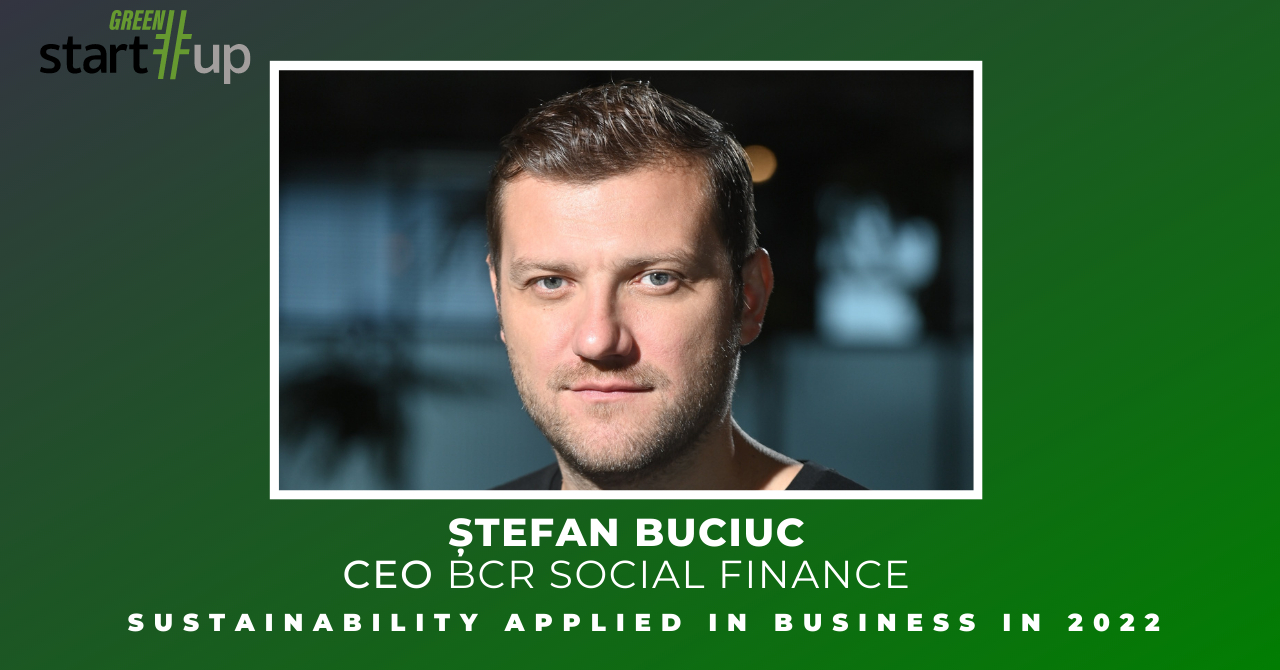





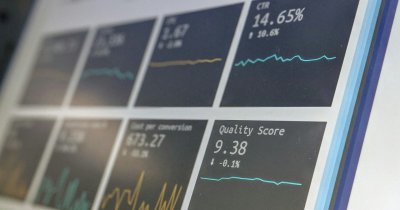


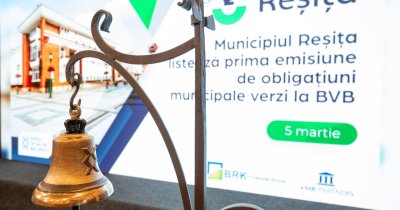
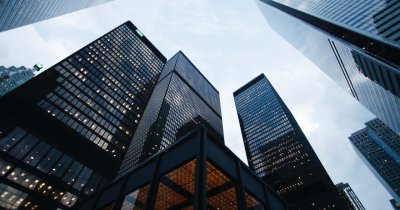

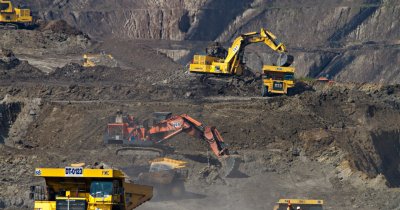
Any thoughts?